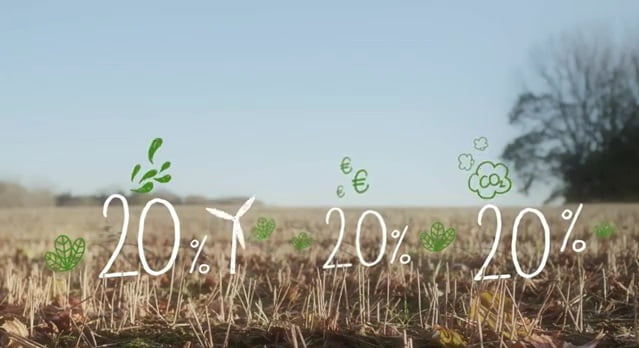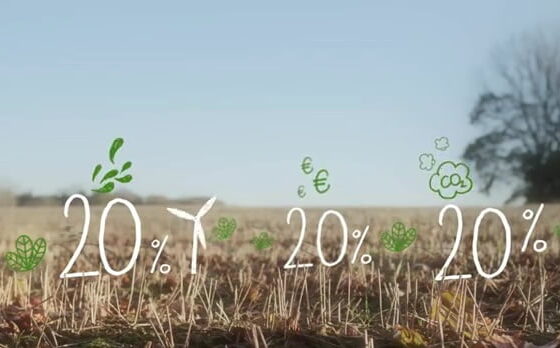

Features
EU Sustainable Energy Week
Blue & Green Tomorrow interviews Gilles Gantelet, head of unit (communication & inter institutional relations) at DG Energy of the European Commission about Sustainable Energy Week, which runs June 18–22.
Energy efficiency and renewable energy go hand in hand. Raising awareness of the need for energy efficiency is clearly important, so what progress is the EU making?
The European Union has taken important steps towards sustainable development in the last few years by setting the 20/20/20 objectives, namely achieving a 20% energy savings, a 20% share of renewables in final consumption, and a 20% cut in greenhouse gas emissions by 2020. We are on track to succeed in reducing emissions and increasing the share of renewables. However we are far from being successful in energy efficiency. The current trends show that we will miss our objectives by far if we do not boost our efforts. Energy efficiency is key to guarantee simultaneously our security of supply, the sustainability of the energy system and our competitiveness.
What is the history behind Sustainable Energy Week? What is the anticipated involvement rate?
The EU Sustainable Energy Week (EUSEW) began in 2005 in the form of a single sustainable energy debate. It then grew bigger and bigger, doubling in size every year until 2010, when its organisation was delegated to the Executive Agency for Competitiveness and Innovation (EACI). Last year, it comprised more than 700 events in 43 countries with an estimated 150,000 participants. This year the goal is to reach 1,000 events in Europe and beyond.
The cheapest energy of all remains the energy we do not consume.
The EUSEW consists of a high level policy conference held in Brussels with the aim of building alliances among sustainable energy stakeholders, and a series of Energy Days organised by municipalities, regions and other stakeholders throughout Europe to ensure a strong level of public awareness, understanding and support. The key idea is to favour a bottom-up approach; we have to build on all experiences on the ground, at local level to federate efforts in favour of our common objectives. The week takes stock of all actions and allows various projects to exchange views. It is the Europe of realities and Europe of citizens at its best.
Many people support renewable energy but are under the impression that because the energy is renewable and non-polluting, they can use more of it and think less about energy usage. What can be said or done to change this attitude?
You are right. Renewable energy is not a new source without limits. To be fully operational, it requires important capacities of production and an adequate infrastructure for transmission: this will need important investments. Moreover, renewable energy is also facing the challenge of its own intermittence, and the subsequent need for back-up and some diversity in energy production. Citizens must be more aware of the importance and impact of energy, as well as its cost. And they must be especially mindful of the fact that the cheapest energy of all remains the energy we do not consume.
What is the potential of renewable energy and the role energy efficiency has to play in the mix from an EU perspective?
At EU level, there is an overall objective to have 20% of final consumption from renewable energy. This has been a great effort for some countries and this objective takes into account the diversity of national situations. The important thing was to ensure that all countries would make huge efforts and increase their share of renewables. This share will certainly increase further after 2020. But it is premature at this stage to say what the new share will be. This is exactly what we are discussing with all Member States and the European Parliament within the debate on the Roadmap 2050. Various scenarios are being considered, and according to the efforts made by the countries, we will be able to simultaneously secure a low-carbon energy system and a secure supply. And again, energy efficiency remains the most promising way of reaching a reduction of more than 80% of emissions in our energy system: the margin of progress is enormous. And it would certainly favour the creation of jobs within the EU.
How far away is Europe from achieving an acceptable level of sustainable energy production? What more can be done?
Europe is on track to achieve an acceptable level of sustainable energy production, but, as you might know, the energy mix is a matter of national competence and it is eventually up to Member States to choose their energy sources. However, within a Single Energy Market any decision has an impact on the overall system and requires some coordination at EU level. Last but not least, all scenarios explored by the Roadmap 2050 show that renewable energy will have more importance. It is important to get the balance right to have a diversified energy mix catering for our needs at the best price. The crucial decisions we need to take now will pave the way for the next decades. I would like also to add that it would be very wrong if some actors used the current economic context to slow down the efforts. This would be a major mistake also in terms of missed opportunities for economic recovery. Though renewable targets were on track, several Member States have reduced or stopped the current support schemes, creating a strong uncertainty for investors. And investors need certainty.
Though renewable targets were on track, several Member States have reduced or stopped the current support schemes, creating a strong uncertainty for investors. And investors need certainty.
Saving 20% of primary energy consumption is an ambitious goal – what are the everyday steps that people can take at home and in their businesses to contribute to success?
Energy efficiency is everyone’s business. We have made important proposals on buildings and services and I hope that Member States will maintain the same level of ambition. These proposals will constitute the framework for actions in public buildings, schools, industry, services, etc… But there are also a lot of choices that we can all make at home. The assessment of the energy performance of a “green” house or office shows that in many cases you can have a strong return on investments in a few years. And daily decisions on heat or lighting systems already have an impact on the bill you pay at the end of the month. I deeply think that the first thing to do is to be aware that energy is a cost. And while we must always pursue the target of affordable prices for all citizens, we must also be aware that nothing is for free.
Could you give some examples of Energy Days that are taking place that will inspire people to create their own?
Energy Days vary in format and size. Examples include special classes given by energy experts who explain to students how solar panels and wind mills work; professional workshops aimed at sharing the latest innovations and technologies in insulation materials; outdoor events and activities that allow people of different ages, class and education to experience the usefulness of renewable energy; guided tours for journalists interested in the economic advantages of energy efficiency. Energy Days take place in large capitals and in small villages all over Europe.
Ultimately, Energy Days are about people, so what really matters is the creativity, competence and motivation of their organisers, and how well connected they are with their local reality, city and region.
For more information about Sustainable Energy Week and how you can take part, visit the website here.
Further reading:
Ed Davey’s clean energy investment challenge
Renewable energy backed by 85% of Brits
UK renewable energy investment surged in 2011
Infographic: renewable energy in Europe


 Environment12 months ago
Environment12 months agoAre Polymer Banknotes: an Eco-Friendly Trend or a Groundswell?

 Features11 months ago
Features11 months agoEco-Friendly Cryptocurrencies: Sustainable Investment Choices

 Features12 months ago
Features12 months agoEco-Friendly Crypto Traders Must Find the Right Exchange

 Energy11 months ago
Energy11 months agoThe Growing Role of Solar Panels in Ireland’s Energy Future


























